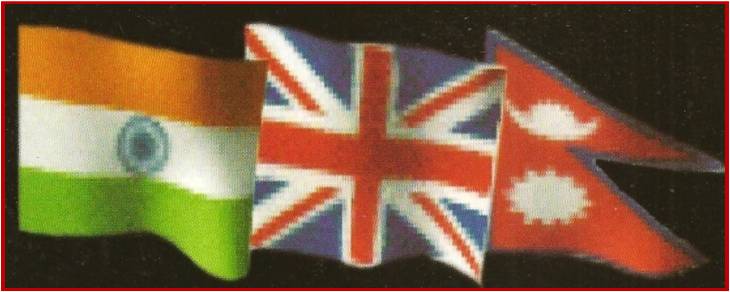Father Regt
About Us
About Us

Introduction
On 03 Jun 1947, the British government announced the plans for the partition of India and the transfer of power to the two new states that was to take effect on 15 Aug1947. Lord Louis Mountbatten, who was appointed as the Viceroy was to oversee the transfer of power and the partition. The partition, on the eve of its birth, had been a painful experience for the nation, which was temporarily forgotten only due to the joyous outpouring and euphoria of the independence. The partition of the country also resulted in the division of the armed forces between India and Pakistan. While the former led to large-scale migration across the newly demarcated frontiers, leading to unprecedented communal killings, the latter was more organised and better handled by the two successor nations.
Division of Gurkha Regiments
The Armed Forces Reconstitution Committee under Field Marshal Auchinleck, with representatives from the future Indian and Pakistani Armies were able to decide the division of most regiments of the British Indian Army. The Gorkha units and Govt of Nepal refused to send any Gorkha units to Pakistan, however the division of Gurkha Regiments was not fully settled as ‘His Majesty’s Government’ wanted to retain some of the Gurkha units to protect its colonial interests in South East Asia and to act as a strategic reserve. At that point in time, there were 10 Gurkha regiments in service with the His Majesty’s Government.

|
Main Clauses of the Tripartite Agreement Continued employment of the Gorkha Officers and men in the Indian Army. The British may employ eight Gorkha Battalion |
In May 1947, negotiations began in Kathmandu between the representatives of India, United Kingdom and Nepal to decide the future of Gurkha soldiers in service with the British Indian Army. The Prime Minister of Nepal welcomed the proposal of maintaining the Gurkha connection with the armies of United Kingdom and India, provided the terms and conditions offered were not detrimental to the interest or dignity of the Nepalese Government and the men themselves were willing to serve1. No Gurkha units were to go to the Pakistan Army and the Nepal Prime Minister even sought an assurance on this issue. Under a Tripartite Agreement signed between the Government of India, the Government of Nepal and His Majesty’s Government at Kathmandu on 09 Nov 1947, ‘it was decided to transfer to the British Army all volunteers from the regular battalions of the 2nd, 6th, 7th and 10th Gurkha Rifles together with personnel from their regimental centres. However, this would include only those personnel who opt for such service in the referendum, which would be held subsequently. The Gurkha units not transferred to His Majesty’s Government as well as the Gurkha personnel of these units who did not opt for service with His